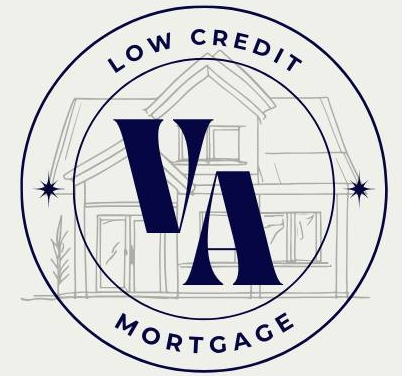Getting a VA Loan with a Credit Score of 500: Everything You Need to Know
If you’re a veteran or active-duty service member with a credit score around 500, you may be wondering if it’s still possible to secure a VA loan. The VA loan program is designed to help veterans, service members, and certain members of the National Guard and Reserves become homeowners, even with financial challenges. While having a credit score of 500 is below the average threshold for most conventional loans, there are still pathways to obtaining a VA loan.
In this guide, we’ll explain how you can qualify for a VA loan with a credit score of 500, the factors that lenders consider, and how to improve your chances of approval.
Understanding VA Loans and Credit Score Requirements
What Is a VA Loan?
A VA loan is a mortgage loan backed by the U.S. Department of Veterans Affairs. This type of loan offers many benefits to eligible veterans and service members, including no down payment, lower interest rates, and more lenient credit requirements compared to conventional loans. The goal is to make homeownership more accessible to those who have served in the military.
What Is a Credit Score and Why Does It Matter?
Your credit score is a numerical representation of your creditworthiness, calculated based on factors such as payment history, credit utilization, and the length of your credit history. A higher score generally indicates to lenders that you are less risky, while a lower score suggests a higher likelihood of default. Traditional mortgage lenders often require a minimum credit score of 620 to 640 for conventional loans, but VA loans have more flexible criteria, especially for veterans who are facing financial hardships.
VA Loan Credit Score Guidelines
While the VA itself does not impose a minimum credit score requirement for VA loans, most VA-approved lenders do. The typical credit score requirement for most lenders is around 620, but it is possible to get a VA loan with a credit score of 500 or even lower. This is because the VA loan program is designed to be more lenient with applicants who have had financial setbacks.
Can You Get a VA Loan with a Credit Score of 500?
The short answer is yes, it is possible to get a VA loan with a credit score of 500, but it comes with certain conditions and challenges. Here’s what you need to know:
1.Lender-Specific Requirements
While the VA has flexible guidelines, individual lenders have their own set of criteria. Some lenders may require a higher credit score, while others may be willing to work with borrowers who have lower scores, including those with scores as low as 500. It’s essential to shop around and compare different VA-approved lenders to find one that is willing to work with your credit profile.
2.Compensating Factors
Lenders may consider certain compensating factors that could offset your low credit score. These include:
•Stable income: A steady job or consistent source of income can reassure the lender that you’ll be able to make your mortgage payments on time.
•Low debt-to-income ratio (DTI): If your DTI ratio is low, lenders may be more likely to approve you, even with a low credit score.
•High cash reserves: Having a significant amount of savings or assets can demonstrate to lenders that you have the financial resources to handle the responsibilities of homeownership.
3.Other Factors Affecting VA Loan Approval
In addition to your credit score, lenders will evaluate several other factors when determining whether to approve your VA loan application, including:
•Employment history: A stable work history (typically two years) is a key factor.
•Past bankruptcy or foreclosure: While these events may make it harder to qualify for a VA loan, they do not automatically disqualify you.
•The home’s value: The property you intend to buy will be appraised by the VA, and the appraisal must meet certain standards to ensure the home is worth the loan amount.
How to Improve Your Chances of Getting Approved for a VA Loan with a Low Credit Score
Even though a credit score of 500 is below average, there are several steps you can take to improve your chances of qualifying for a VA loan:
1. Work with a VA Loan Specialist
One of the most effective ways to improve your chances of securing a VA loan with a low credit score is by working with a VA loan specialist. These professionals are familiar with the unique requirements of the VA loan program and can help you navigate the process. A loan specialist can also assist in identifying lenders who are more willing to approve loans for applicants with lower credit scores.
Find a VA Loan Specialist Near You
2. Increase Your Credit Score
If possible, try to raise your credit score before applying for the loan. Here are a few strategies to improve your score:
•Pay down outstanding debts: Reducing credit card balances and other debts can improve your credit score by lowering your credit utilization ratio.
•Dispute inaccuracies: Check your credit report for errors and dispute any inaccuracies with the credit bureaus.
•Make payments on time: Timely payments on all debts, including credit cards, loans, and utilities, will have a positive impact on your credit score.
3. Consider a Co-Signer
If you’re struggling with a low credit score, consider having a co-signer on your VA loan. A co-signer with a higher credit score can strengthen your application and increase your chances of approval. Keep in mind that this individual will be legally responsible for repaying the loan if you default.
4. Save for a Larger Down Payment
While VA loans typically don’t require a down payment, offering a larger down payment can be a strong compensating factor for lenders when your credit score is low. A larger down payment reduces the lender’s risk and demonstrates your commitment to the purchase. Even a modest down payment can help.
5. Ensure a Low Debt-to-Income Ratio (DTI)
Lenders often look for a DTI ratio of 41% or lower for VA loans, though higher ratios may be acceptable with compensating factors. Reducing your monthly debt obligations can improve your DTI ratio and make you a more attractive candidate for a VA loan.
6. Provide Strong Proof of Income
Stable income is crucial to securing a VA loan, especially with a low credit score. Be prepared to provide recent pay stubs, tax returns, and bank statements to demonstrate that you have the financial capacity to repay the loan. If you are self-employed, you will need to provide additional documentation, such as profit and loss statements.
7. Consider a VA Streamline Refinance
If you already have a VA loan but are looking to refinance, you may be able to take advantage of the VA Interest Rate Reduction Refinance Loan (IRRRL). This option allows veterans to refinance their existing VA loan with minimal documentation and potentially lower rates, even if their credit score is lower than ideal.
Alternatives to VA Loans for Low Credit Scores
If you’re unable to secure a VA loan with a credit score of 500, you might consider other types of government-backed loans, such as:
•FHA Loans: These loans are designed for individuals with lower credit scores and require a minimum score of 580 for a 3.5% down payment, or 500 for a 10% down payment.
•USDA Loans: If you’re purchasing a home in a rural area, a USDA loan may be an option. These loans often require no down payment and have flexible credit score requirements.
Conclusion: How to Secure a VA Loan with a Credit Score of 500
Getting a VA loan with a credit score of 500 is definitely possible, but it requires preparation, persistence, and working with the right lender. While most lenders prefer a credit score of at least 620, some may be more flexible, especially if you have compensating factors like stable income, low debt, or a larger down payment.
If you’re ready to take the next step toward homeownership, consider consulting a VA loan specialist and exploring all of your options. With the right guidance, you can overcome the challenge of a low credit score and achieve your goal of purchasing a home.
Related Resources:

